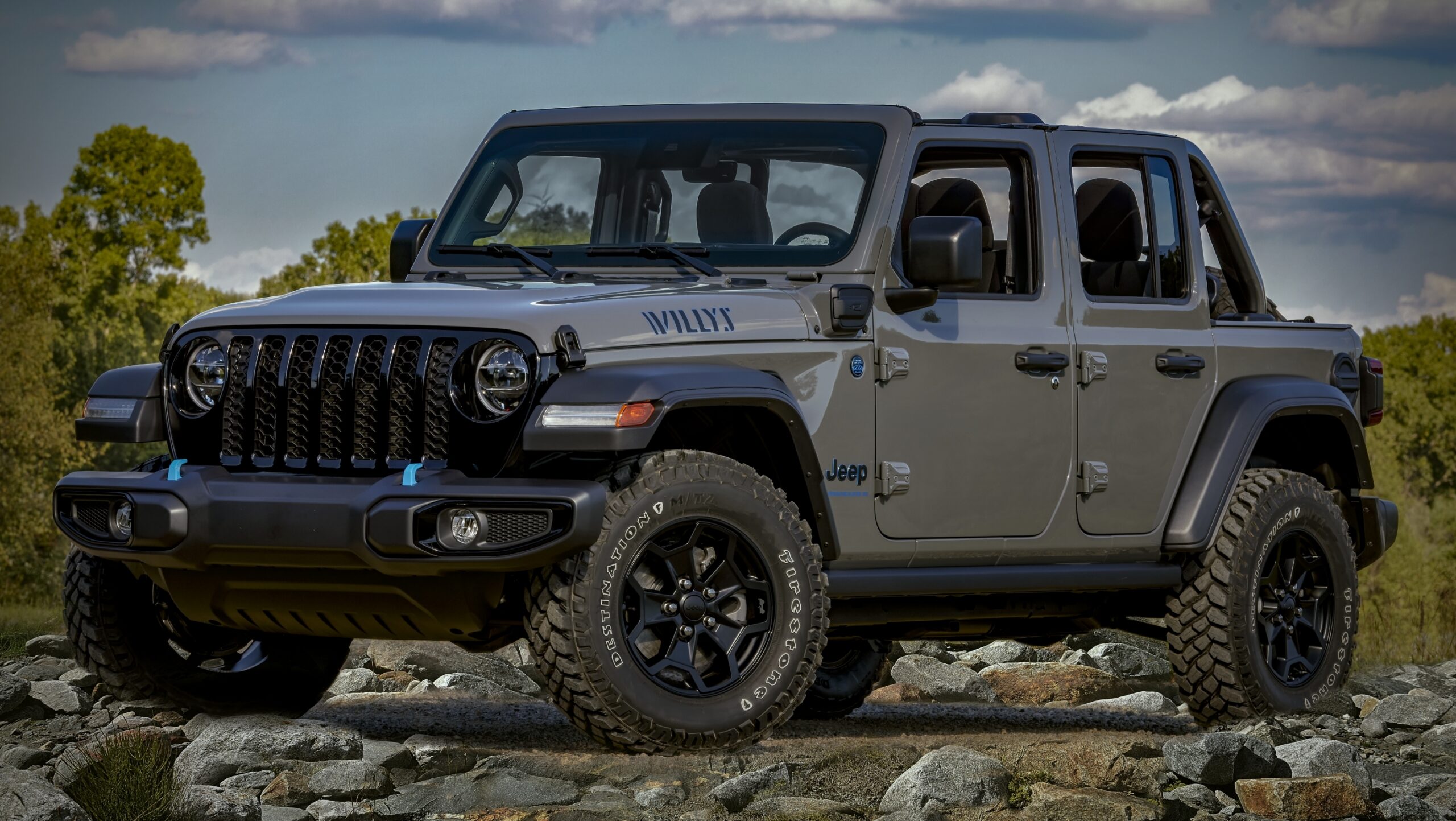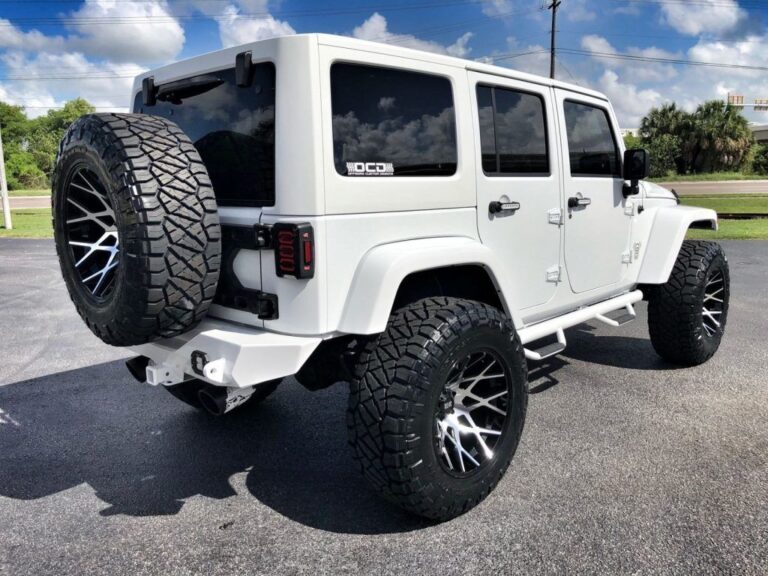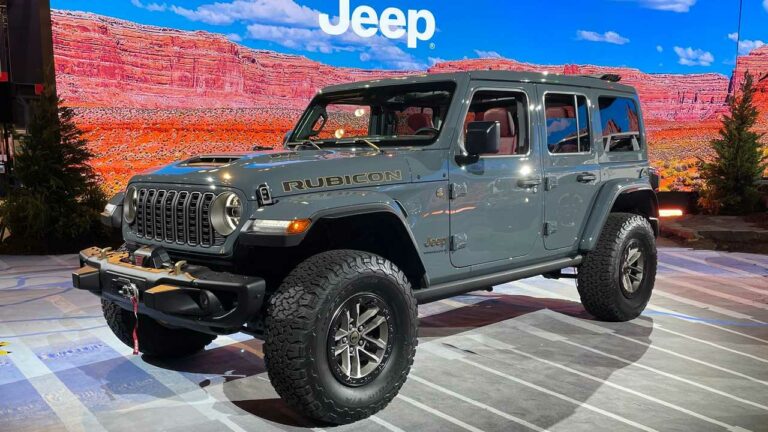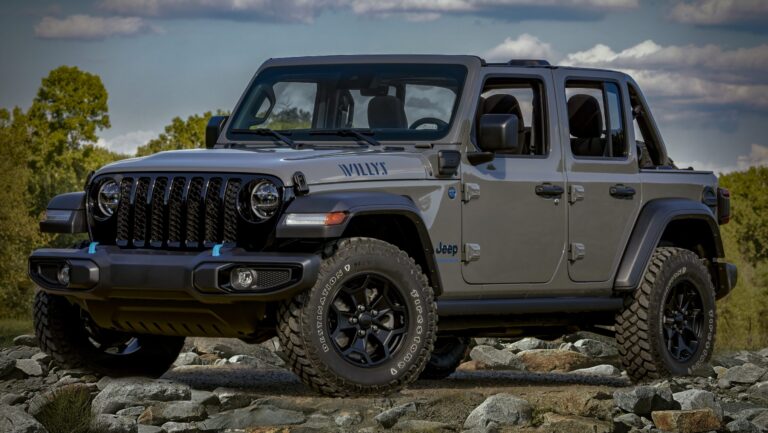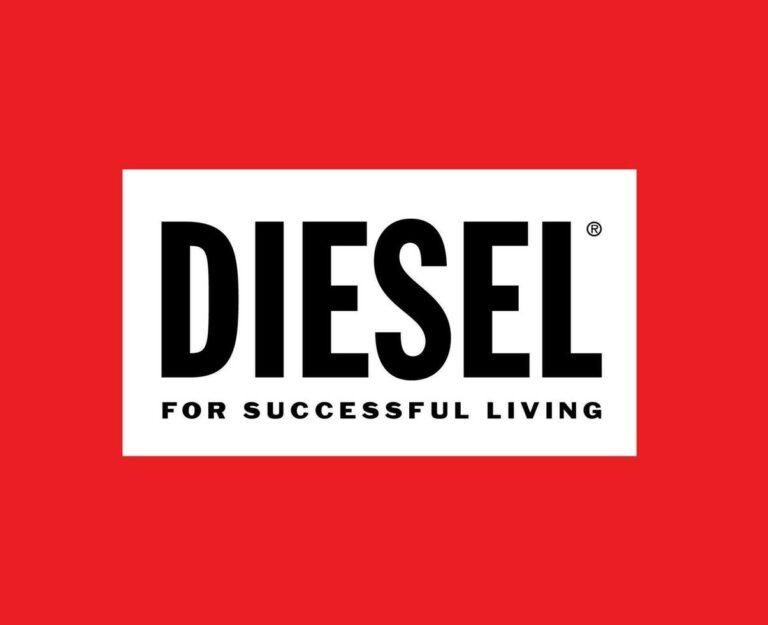Jeep 360 Motor For Sale: Your Ultimate Guide to Acquiring This Legendary V8
Jeep 360 Motor For Sale: Your Ultimate Guide to Acquiring This Legendary V8 jeeps.truckstrend.com
For decades, the name "Jeep" has been synonymous with rugged capability, off-road prowess, and an adventurous spirit. At the heart of many iconic Jeep models from the 1970s and 80s beat a powerful and reliable engine: the AMC 360 V8. Known for its robust torque, distinctive rumble, and straightforward design, the AMC 360 has become a sought-after powerplant for enthusiasts looking to restore a classic Jeep, upgrade a smaller model, or simply enjoy the raw power of a bygone era.
If you’re in the market for a "Jeep 360 motor for sale," you’re tapping into a vibrant community and a rich history. This comprehensive guide will navigate you through every aspect of acquiring one of these legendary engines, from understanding its legacy to inspecting a potential purchase, exploring your options, and addressing common concerns. Whether you’re a seasoned mechanic or a budding enthusiast, this article aims to provide all the knowledge you need to make an informed decision and bring that AMC 360 roar to your project.
Jeep 360 Motor For Sale: Your Ultimate Guide to Acquiring This Legendary V8
The Enduring Legacy of the AMC 360 V8
The AMC (American Motors Corporation) 360 cubic inch V8 engine was a staple in a variety of AMC and Jeep vehicles from 1971 until 1991. Part of AMC’s V8 engine family (which also included the 304, 390, and 401), the 360 quickly became a favorite due to its balance of power, torque, and surprising fuel efficiency for its class.
Key Specifications & Appeal:
- Displacement: 360 cubic inches (5.9 liters)
- Configuration: V8, overhead valve (OHV)
- Horsepower (Stock): Varied significantly over its production run, typically ranging from 129 hp (early 70s, low compression) to 195 hp (earlier versions). Torque figures were always impressive, often exceeding 280 lb-ft.
- Robust Design: Known for its thick block castings, sturdy crankshaft, and ability to withstand considerable abuse, making it ideal for the demanding life of a Jeep engine.
- Simplicity: With a two-barrel or four-barrel carburetor and traditional distributor ignition, the 360 is relatively easy to work on and maintain, a huge plus for DIY mechanics.
- Distinctive Sound: The deep, throaty rumble of an AMC V8 is instantly recognizable and a major draw for many enthusiasts.
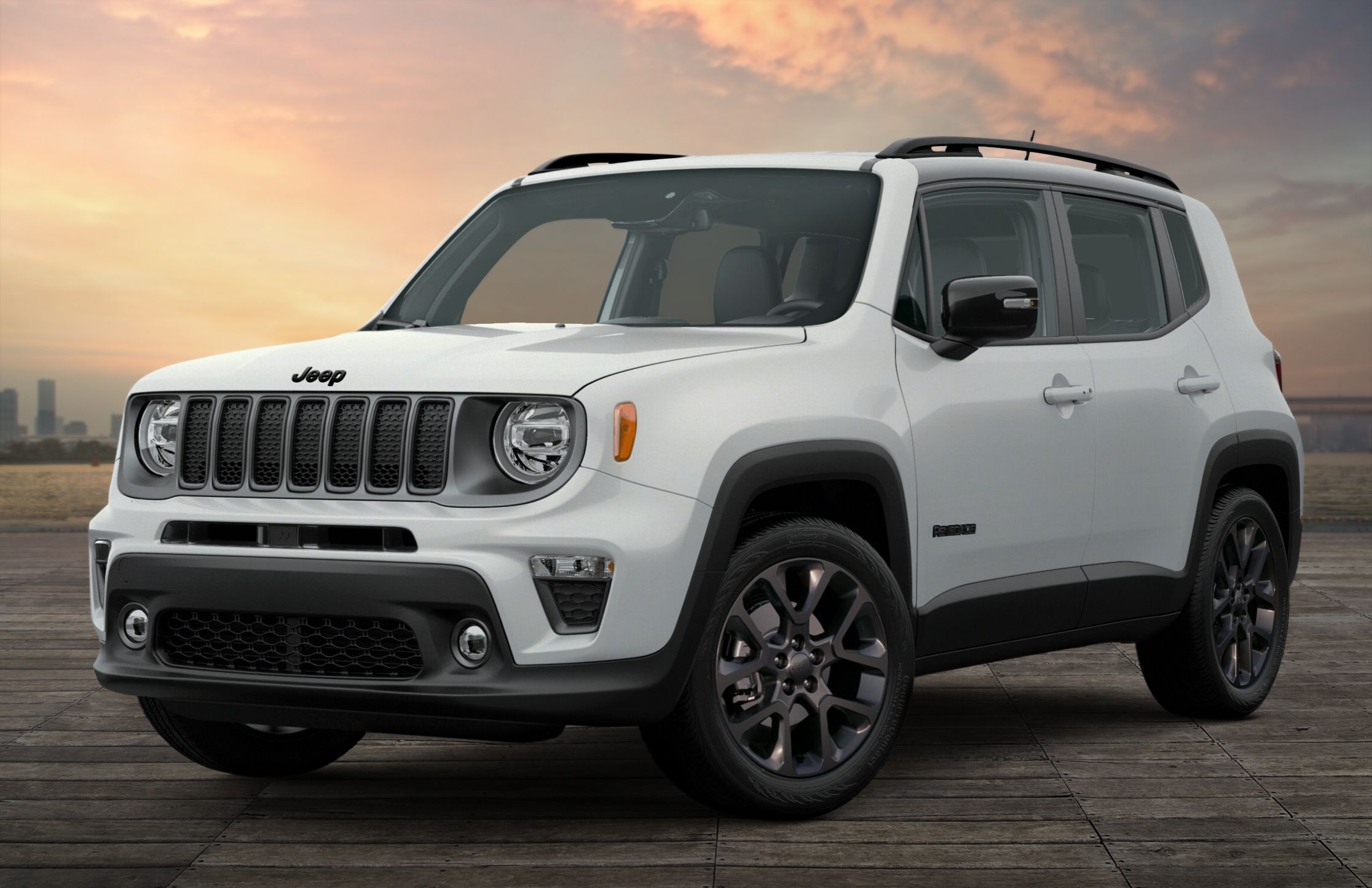
The AMC 360 powered a wide range of iconic Jeep models, including:
- Jeep CJ-7 (late 1970s)
- Jeep Grand Wagoneer (SJ)
- Jeep Cherokee (SJ)
- Jeep J-Series Pickups (J10, J20)
- Jeep Honcho
- Jeep Scrambler (CJ-8)
Its strong low-end torque made it an excellent choice for off-roading, towing, and general utility work, perfectly complementing the rugged nature of the Jeeps it powered. Even today, the AMC 360 holds a special place in the hearts of Jeep loyalists, making "Jeep 360 motor for sale" a common search term for those seeking authentic power for their vintage rigs.
Why Buy a Used Jeep 360 Motor?
The decision to purchase a used or rebuilt AMC 360 engine often stems from a combination of factors that appeal to both practical builders and purist restorers.
- Cost-Effectiveness: A used or rebuilt 360 is typically far less expensive than a brand-new crate engine, especially if you’re looking for an authentic AMC V8. This can significantly reduce the overall budget for your project.
- Authenticity for Restorations: For those restoring a classic Grand Wagoneer or CJ-7 to original specifications, an authentic AMC 360 is paramount. It maintains the vehicle’s historical integrity and often increases its value.
- Power Upgrade: Many older Jeeps came with smaller inline-six or four-cylinder engines. Swapping in a 360 provides a substantial power and torque upgrade, transforming the vehicle’s driving dynamics, especially for off-roading or highway cruising.
- Reliable Replacement: If your existing AMC 360 has finally given up the ghost, finding a suitable replacement or a rebuildable core is often the most straightforward path to getting your Jeep back on the road.
- Project Versatility: The 360 is a fantastic foundation for a custom build. With aftermarket support, you can modify it for increased horsepower, fuel injection, or specialized off-road performance.
Where to Find a Jeep 360 Motor for Sale
Locating an AMC 360 can be an adventure in itself. Here are the most common and effective channels:
-
Online Marketplaces:
- eBay: A vast selection, from running pull-outs to complete rebuilt engines. Be wary of descriptions and always ask for detailed photos and information.
- Craigslist: Search local listings. You might find a good deal from a private seller or a small shop clearing inventory. Local pickup is often required.
- Facebook Marketplace/Groups: Numerous dedicated Jeep, AMC, and vintage 4×4 groups exist. These are excellent places to find engines, parts, and get advice from experienced members.
- Dedicated Forums: Websites like JeepForum.com, Pirate4x4.com, and specific AMC enthusiast forums often have classified sections where members sell parts.
-
Salvage Yards & Auto Recyclers:
- Local Yards: Call around to local salvage yards. Many may have older Jeeps or AMC cars with the 360 still intact.
- Specialized Yards: Some yards specialize in vintage or 4×4 vehicles. These are often better organized and might have engines already pulled and cataloged.
-
Specialty Engine Builders/Rebuilders:
- Several reputable shops specialize in rebuilding AMC engines. While more expensive, you get a professionally rebuilt engine, often with a warranty, ensuring reliability. This is ideal if you want a "turn-key" solution.
- Some even offer performance upgrades or fuel injection conversions.
-
Word of Mouth & Local Car Clubs:
- Attend local Jeep events, car shows, or join a local off-road club. The classic car community is often a great source for parts, and you might find someone selling an engine or know someone who is.
-
Auction Sites:
- Websites like Proxibid or government surplus auctions occasionally list vehicles or engines from various sources. These can be hit or miss but sometimes yield a great find.
What to Look For: Essential Inspection Checklist
Once you’ve found a potential "Jeep 360 motor for sale," a thorough inspection is crucial. If possible, inspect it in person. If not, request detailed photos and videos.
Visual Inspection (External):
- Cracks: Carefully inspect the engine block and cylinder heads for any visible cracks, especially around freeze plugs, exhaust ports, and mounting points. Cracks are often deal-breakers.
- Corrosion/Rust: Look for excessive rust, particularly in the water jackets (around freeze plugs) and exhaust manifold mating surfaces. This can indicate poor maintenance or exposure to the elements.
- Signs of Leaks: Check for oil leaks (oil pan, valve covers, timing cover, rear main seal area) and coolant leaks (water pump, hoses, thermostat housing). While some leaks are minor fixes, extensive ones can indicate underlying issues.
- Accessory Condition: Note the condition of included accessories like the intake manifold, exhaust manifolds, carburetor (or EFI components), distributor, alternator, power steering pump, and A/C compressor. Are they complete? Damaged?
- Oil Filler Cap/Dipstick: Remove the oil filler cap and check the underside. Milky or foamy residue indicates coolant mixing with oil, a sign of a blown head gasket or cracked block/head. Check the dipstick for similar signs.
- Spark Plugs: If accessible, pull a few spark plugs. Their condition can tell you about the engine’s running health (e.g., oil fouling, rich/lean condition).
Mechanical Checks (Internal/Functional):
- Crankshaft Rotation: Use a large socket on the crankshaft bolt (usually 15/16" or 1 1/16") and try to turn the engine by hand. It should turn smoothly, with some resistance from compression. If it’s seized, walk away unless you’re buying a core for a full rebuild.
- Oil Pressure (If Running): If the engine is running or can be started, check for adequate oil pressure. Listen for any knocking, tapping, or unusual noises that could indicate worn bearings, lifters, or connecting rods.
- Compression Test (If Possible): This is ideal. A compression test will tell you the health of the piston rings, valves, and head gasket. Look for consistent readings across all cylinders; significant variance indicates problems.
- Evidence of Previous Work: Look for signs of a recent rebuild, such as fresh paint, new gaskets, or machine shop markings (e.g., on the block or heads indicating bore size). This isn’t necessarily bad, but ask for documentation if possible.
Documentation:
- Source of the Engine: Where did the seller acquire it?
- Mileage: While often unreliable for older engines, ask if the mileage is known.
- Reason for Removal: Why was the engine pulled from the vehicle? A wreck is better than a mechanical failure.
Rebuilt vs. Used vs. Crate: Understanding Your Options
When searching for a "Jeep 360 motor for sale," you’ll encounter different conditions and price points. Understanding the pros and cons of each will guide your decision.
-
Used (As-Is/Pull-Out):
- Pros: Cheapest option, authentic.
- Cons: Unknown internal condition, no warranty, likely needs extensive work (gaskets, seals, possibly a full rebuild) before installation. High risk.
- Best For: Budget-conscious buyers willing to put in the work, or those needing a core for a custom build.
-
Rebuilt (Long Block/Turn-Key):
- Pros: Professionally restored to factory or better-than-factory specs, often comes with a warranty (especially from reputable shops), new wear parts (bearings, rings, gaskets, cam, lifters), reliable.
- Cons: More expensive than a used pull-out.
- Best For: Those seeking reliability and performance without the hassle of a DIY rebuild, or for higher-end restorations. A "long block" includes the block, heads, crank, pistons, cam. A "turn-key" includes all accessories and sometimes a carburetor/EFI.
-
Crate Engine:
- Pros: Brand new components, specific performance levels (often higher than stock), full warranty, ready to install.
- Cons: Most expensive option. While you can find new AMC-style crate engines (often stroker versions based on the 360/401 blocks), a brand-new original AMC 360 is extremely rare. Most "crate" options will be a modern interpretation or a professionally built performance unit.
- Best For: High-performance builds, those with a large budget, or buyers prioritizing maximum power and warranty over strict originality.
Match your choice to your budget, mechanical skill level, and project goals. A cheap used engine might seem appealing, but if it needs a full rebuild, the total cost could exceed a professionally rebuilt unit.
Important Considerations Before Buying
Beyond the engine itself, there are several practical considerations to factor into your purchase:
-
Budget Beyond the Engine:
- Shipping Costs: AMC 360s are heavy. Freight shipping can be hundreds of dollars, especially across states. Factor in liftgate services if you don’t have a forklift at your delivery location.
- Ancillary Parts: Will you need a new carburetor, ignition system, exhaust manifolds, motor mounts, or cooling system components? These add up quickly.
- Installation Costs: If you’re not doing the swap yourself, factor in shop labor.
- Potential Rebuild Costs: If buying a used engine, assume it needs at least gaskets and seals, possibly more. Get quotes for machine work if you anticipate a rebuild.
-
Compatibility with Your Vehicle:
- Engine Mounts: Ensure the engine will bolt into your specific Jeep frame.
- Transmission Bolt Pattern: The AMC V8s use a unique bellhousing bolt pattern, different from later Chrysler or GM engines. Ensure your transmission (or the one you plan to use) is compatible (e.g., T-15, T-18, TH400, TF-727 with AMC pattern).
- Cooling System: Will your radiator and fan be adequate for the V8?
- Wiring: Be prepared for wiring harness modifications if converting from a different engine type.
-
Seller Reputation:
- Check reviews, ask for references, and communicate thoroughly. A reputable seller will be transparent about the engine’s history and condition.
-
Warranty/Return Policy:
- Especially crucial for rebuilt engines. Understand what the warranty covers and for how long. For used engines, assume "as-is" unless explicitly stated otherwise.
-
Local Laws and Emissions:
- Be aware of any local or state laws regarding engine swaps, vehicle age, and emissions testing. Swapping an older, carbureted engine into a newer vehicle might not be street legal in some areas.
Installation Tips and Post-Purchase Advice
Congratulations on your "Jeep 360 motor for sale" purchase! Here’s what to do next:
- Thorough Cleaning and Inspection: Even if it’s a "running" engine, give it a good degreasing and external cleaning. Perform your own detailed visual inspection upon arrival.
- Replace Seals and Gaskets: It’s highly recommended to replace the oil pan gasket, valve cover gaskets, timing cover gasket, and intake manifold gasket before installation. These are common leak points.
- Consider Key Components: Unless it’s a fresh rebuild, consider installing a new oil pump, water pump, and timing chain set. These are relatively inexpensive insurance against future failures.
- Carburetor vs. EFI: Decide if you want to stick with a traditional carburetor or upgrade to a modern electronic fuel injection (EFI) system (e.g., Holley Sniper, FiTech). EFI offers better cold starts, fuel economy, and drivability but adds cost and complexity.
- Proper Break-In: If you’ve purchased a rebuilt engine, follow the builder’s specific break-in procedure. This is critical for seating piston rings and ensuring long engine life.
- Cooling System Upgrades: The AMC 360 can run hot in a Jeep, especially off-road. Consider a larger radiator, high-flow water pump, and a good fan shroud to keep temperatures in check.
- Exhaust System: Plan for a custom exhaust system to match the V8. Headers are a popular upgrade for improved flow and sound.
Jeep 360 Motor For Sale: Estimated Price Guide
The price of a Jeep 360 motor can vary significantly based on its condition, completeness, and the seller’s reputation. This table provides a general estimate.
| Condition Category | Description | Estimated Price Range (USD) | Key Considerations
